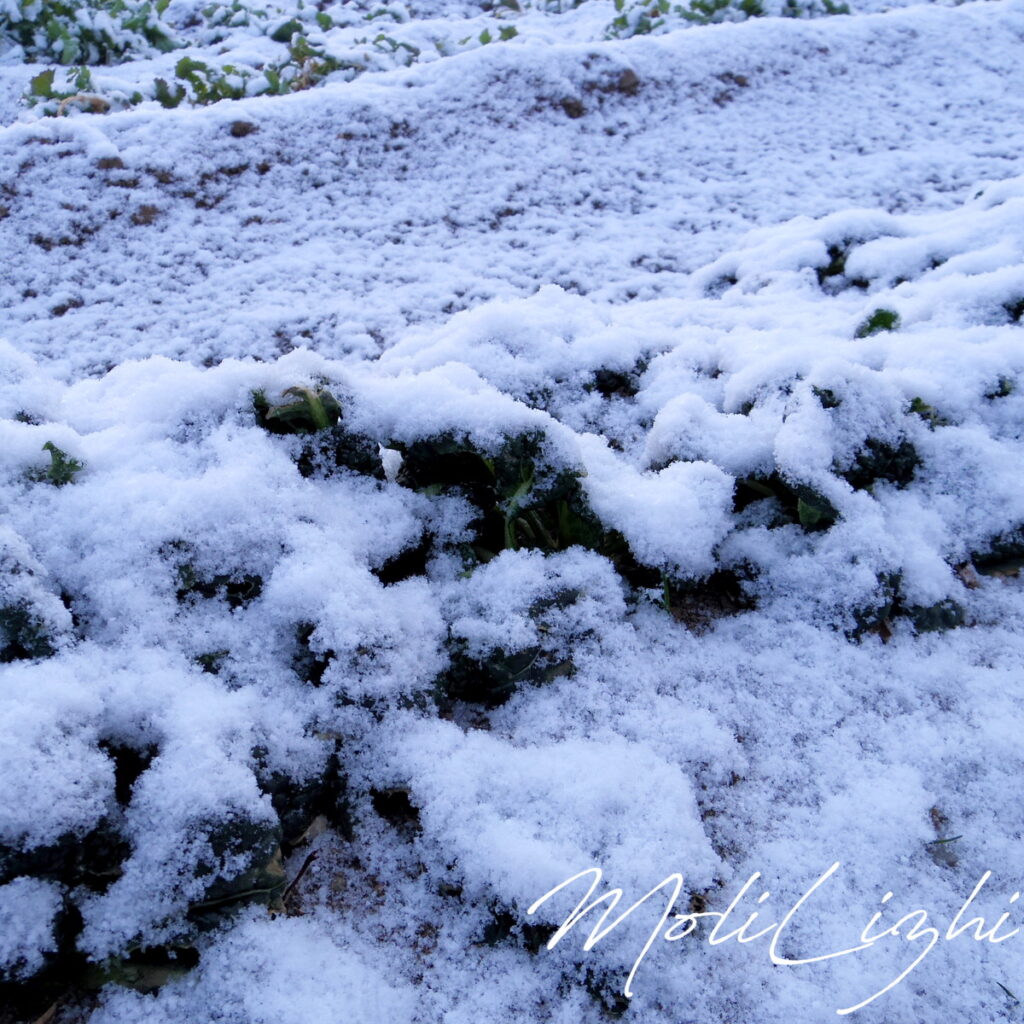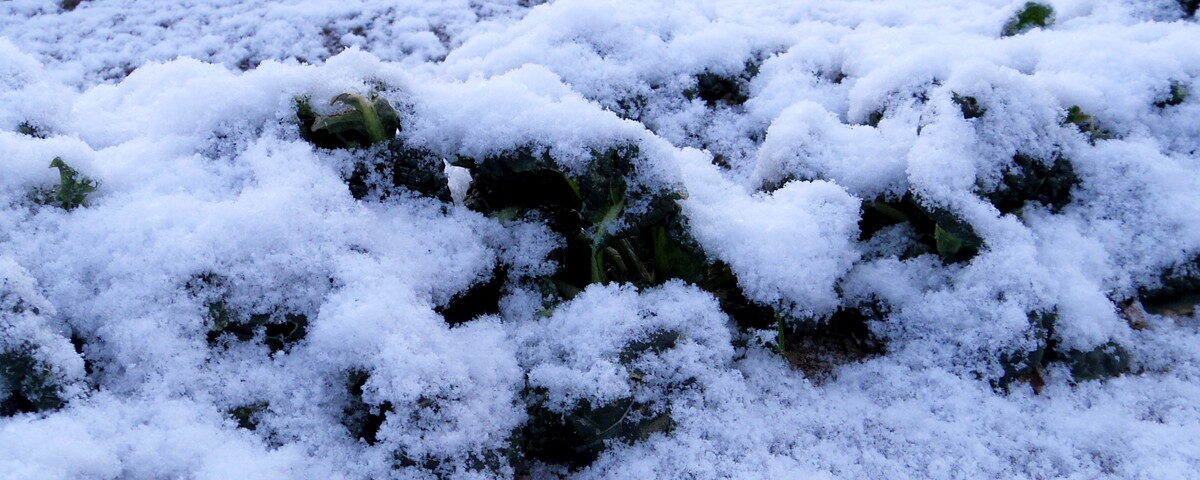仙台の冬の味覚
雪が降ると食べたくなる、仙台の伝統野菜「雪菜」。
雪の下から摘み取るイメージがありますが、実際は霜に当てて甘みを凝縮させるのが特徴です。
ビタミンやミネラルも豊富で、冬の寒さ対策にもぴったり。
油との相性が抜群なので、炒め物や鍋料理におすすめです


拈華微笑 I may not fully grasp the truth that Mahākāśyapa realized, but I still wish to emulate his smile. This is a story from the time when Shakyamuni Buddha delivered a sermon on Vulture Peak. It is said that Shakyamuni, without saying a word, picked up a lotus flower and gently showed it to the assembly. While the disciples could not grasp his meaning, only Mahākāśyapa understood Shakyamuni's intention and smiled gently. Mahākāśyapa adhered to strict precepts regarding clothing, food, and shelter, leading a simple life. Specifically, he wore coarse robes, ate only food received through begging, and practiced asceticism, wandering without a fixed abode. Though I cannot live like Mahākāśyapa, I have decided to grow vegetables instead, in place of his gentle smile and simple way of life.

仙台の冬の味覚
雪が降ると食べたくなる、仙台の伝統野菜「雪菜」。
雪の下から摘み取るイメージがありますが、実際は霜に当てて甘みを凝縮させるのが特徴です。
ビタミンやミネラルも豊富で、冬の寒さ対策にもぴったり。
油との相性が抜群なので、炒め物や鍋料理におすすめです
